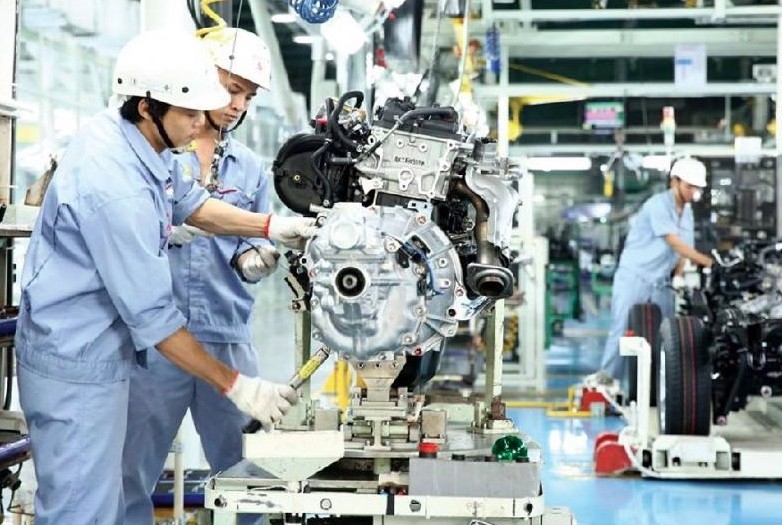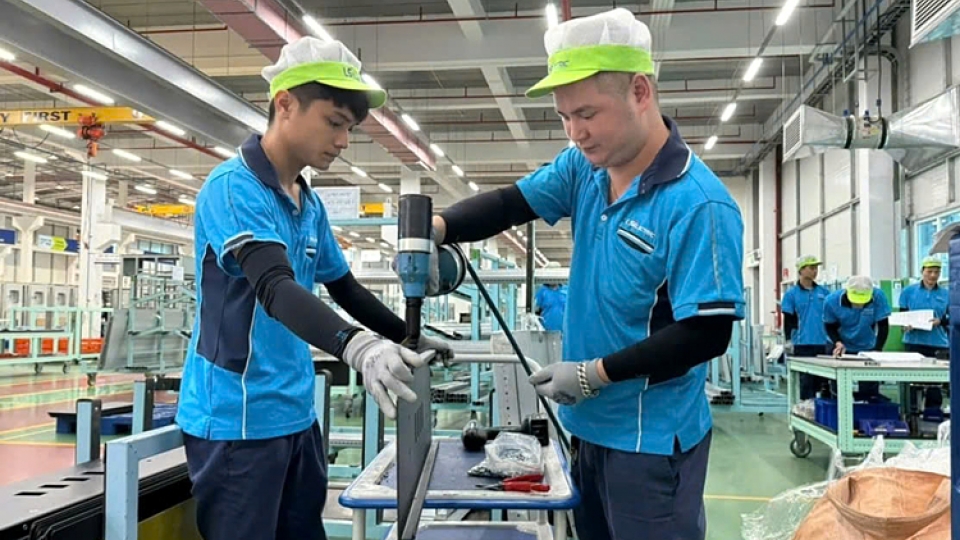Vietnam's PMI rebounds in May amid improved output and business confidence
VOV.VN - Vietnam’s Manufacturing Purchasing Managers' Index (PMI) remained below the 50.0 no-change threshold for a second consecutive month in May but climbed to 49.8 from 45.6 in April, signaling a near-stabilisation in business conditions, according to S&P Global.

In a report released on June 2, S&P Global noted that new orders in Vietnam's manufacturing sector continued to fall in May, with US-imposed tariffs reportedly dampening demand, particularly for exports.
The decline in demand was most pronounced in export markets, with new orders from overseas falling at a significantly faster pace than total new orders. While the drop in export orders was broadly in line with April, the fall in overall new business was less severe than the previous month.
Despite continued weakness in new orders, output returned to growth in May after contracting in April. The recovery in production was supported by greater policy stability around tariffs, as well as reported improvements in capacity.
In line with this trend, business confidence also improved in May amid more stable tariff conditions. However, a number of firms remained cautious about the potential impact of tariffs, keeping overall sentiment well below the series average.
The report also highlighted a further fall in manufacturing employment, attributed to reduced workloads and staff resignations. Nonetheless, the decline was only marginal and the slowest recorded since October 2024, as firms maintained efforts to sustain output.
Backlogs of work continued to fall due to lower new orders, though the rate of decline eased to the slowest in the current five-month sequence.
To support rising production, manufacturers increased purchasing activity slightly in May, ending a two-month period of contraction. Despite this, input inventories declined again—though to the smallest extent since August 2024.
Finished goods inventories also fell, as firms cited prompt delivery of products and a reluctance to hold stock. Meanwhile, suppliers' delivery times lengthened modestly in May, with some respondents blaming slow traffic.
With demand muted, certain suppliers offered discounts during the month, leading to a drop in input prices—the first since July 2023. As a result, manufacturers continued to reduce their selling prices. Output charges have now declined for five straight months, with a modest fall again seen in May.
"The news around tariffs continues to play a key part in determining trends in the Vietnamese manufacturing sector. May saw a more stable picture in terms of US tariff policies than April, helping lead to a renewed expansion in output and improved business confidence. However, manufacturers remained wary of the impact of tariffs and again saw a marked reduction in new export orders which contributed to a continued decline in new business overall,” said Andrew Harker, Economics Director at S&P Global Market Intelligence.
"Another noteworthy aspect of the latest PMI survey was a first fall in input costs for almost two years as suppliers offered discounts in a subdued demand environment. As we approach the mid-point of the year, eyes will remain on US tariff policy to see how the Vietnamese manufacturing sector will be affected,” he noted.




